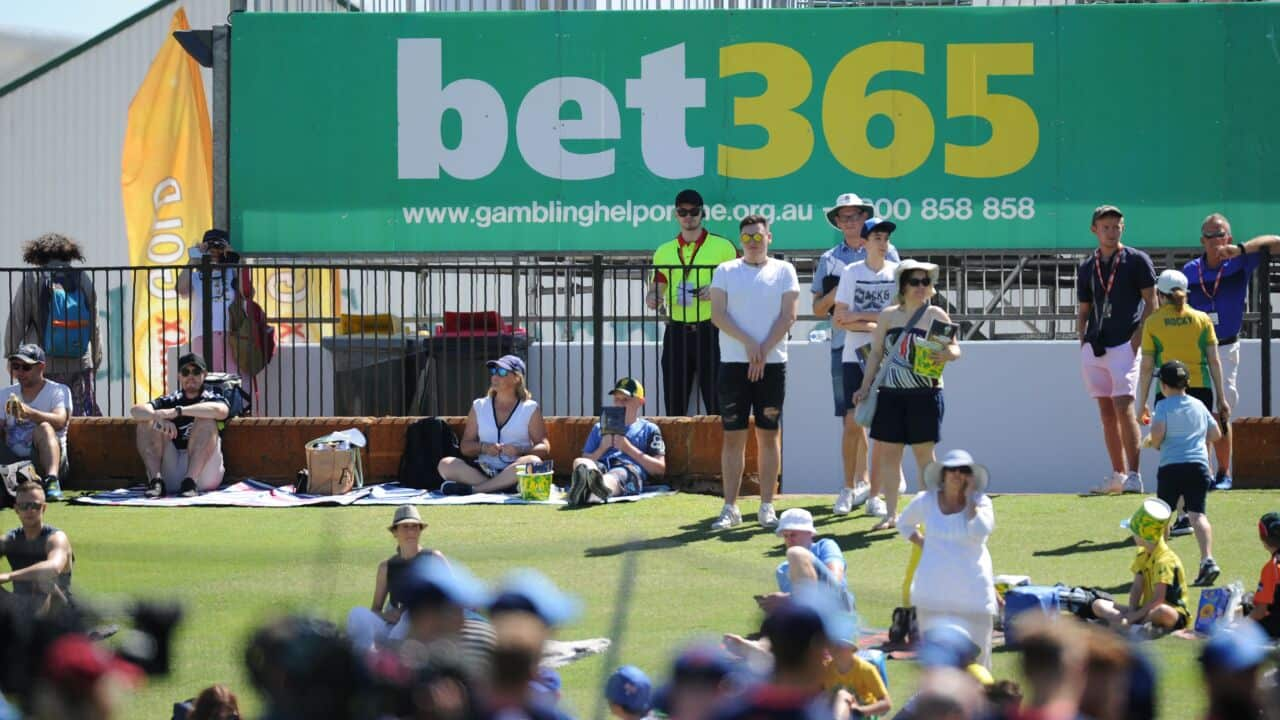KEY POINTS:
- A parliamentary report has recommended a ban on online gambling advertising.
- The report makes 31 recommendations, including a national gambling regulator.
- More than a third of Australians gamble monthly.
This story mentions suicide
Online gambling advertising would be banned within three years and inducements such as vouchers would be outlawed immediately, under recommendations from a new parliamentary report.
, published by federal parliament's standing committee on social policy and legal affairs, has also called for a national online gambling regulator with the sole aim of reducing harm.
The nine-monthly inquiry heard testimony on the of online gambling, which Australians spend more on than residents of any country.

Committee chair and Labor MP Peta Murphy said online gambling was "wreaking havoc" in Australia, with children as young as seven starting to talk about sport “essentially as a vehicle for betting”.
“They talk about the odds, they can identify gambling companies by their colours and their logos,” she said.
“They don't talk about who their favourite player is, how skilful their favourite player is, or whether their team's going to win. They talk about the odds. Parents don't like that.”
How the ad ban would work
The report outlines a four-phase comprehensive ban on every form of online gambling, including social media, to be rolled out over three years:
- Phase 1: An immediate ban on gambling inducements - including the offer of credits, rewards, or vouchers.
- Phase 2: A ban on all online gambling advertising, and commentary on odds, an hour either side of a sports broadcast. That would come with a ban on all gambling advertising inside stadiums, including on players' uniforms.
- Phase 3: All broadcast online gambling would be banned between 6am and 10pm.
- Phase 4: All online gambling advertising and sponsorship to be banned by the end of year three.
It recommends an exemption for advertising on dedicated racing channels, while small community radio broadcasters would not face restrictions until the end of 2025.
Australians lost roughly $25 billion to legal forms of gambling in 2018-19, including $4.5 billion via gambling on sports and racing.
The federal government's Australian Institute of Health and Welfare put the flow-on costs - including psychological costs, relationship and family impacts, and productivity losses - at roughly $7 billion in Victoria alone.
More than a third of adults in Australia gambled monthly in 2018, with lotto, instant scratch tickets, and poker machines the most common method.

What else does the report call for?
The gambling advertising phase-out is just one of 31 recommendations in the report.
Other key recommendations include:
- A levy on online gambling to fund harm prevention measures.
- Having a single minister in charge of reducing online gambling harm.
- A national strategy on online gambling harm reduction to be introduced within 12 months.
- A national online gambling regulator and a national online gambling ombudsman.
- A ban on staff receiving commissions for successfully referring online gambling.
- Online gambling companies must disclose non-identifying customer data on participation and risk indicators.
- A ban on payment methods which don’t minimise the risk of gambling harm.

How are people responding?
Opposition leader Peter Dutton warned gambling advertising had become “completely invasive” and was interrupting “precious” family time.
While accepting the report had many elements, Mr Dutton said he hoped the government would respond quickly to the report.
“When you are sitting down with your kids … watching the footy or a cricket game, you don't want to be bombarded with ads, and you don't want the conversation with your teenage children to be about multis and who is going to score the first try,” he said.
“We have created a gambling culture in this country which goes well beyond anything we knew before and we should act in the best interests of parents here … it is not a culture that I think we should promote.”
The Public Health Association of Australia welcomed the report, and called for swift bipartisan action to enact its recommendations.
“There’s a weight of evidence over decades that shows a suite of actions works to address many other health harms," its chief executive Terry Slevin said.
"It’s essential that the Australian Government acts now, despite the fightback which the gambling industry and its associated partners will mount."
Free TV Australia, which represents commercial broadcasters, said it understood community concern, but claimed "kneejerk" outright bans would hurt viewers and the "services they love".
“The Committee’s proposed ban is based on a fundamentally flawed premise that the advertising market is some kind of magic pudding (inexhaustible)," its chief executive Bridget Fair said.
"But reductions in advertising revenue in the current economic and competitive environment can only result in less funding for Australian content."
Free TV also pointed out that many sport broadcasting deals extended beyond three years, and called for a "considered response" to the report.
What's the extent of gambling harm in Australia?
In April, the inquiry heard that more than a half million Australians had asked their bank to temporarily ban them from gambling as part of banks' own self-exclusion programs.
It came as the government pushed ahead with its national self-exclusion register, BetStop, to help problem gamblers ease themselves away from addiction.
A report released by the government's Australian Institute of Family Studies this year also laid bare the extent of the problem in Australia.

Of those who gambled, 46 per cent were considered at some risk of betting harm.
Men aged between 18-34 were the cohort considered at most risk, with women aged 55 and over least likely to suffer from gambling harm.
Readers seeking crisis support can contact Lifeline on 13 11 14, the Suicide Call Back Service on 1300 659 467 and Kids Helpline on 1800 55 1800 (for young people aged up to 25). More information and support with mental health is available at and on 1300 22 4636.









